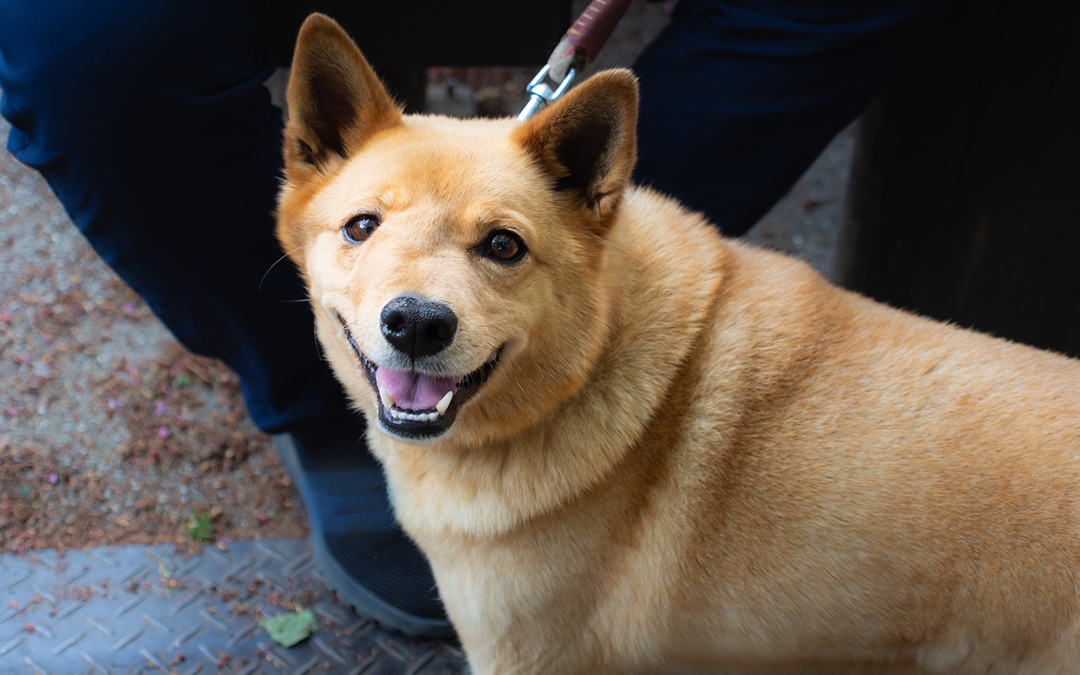As a dog owner, it’s concerning when you notice your furry friend scratching or shedding flakes. Dry skin on dogs is a common issue, but understanding the causes and knowing how to treat it can make all the difference for your pet’s comfort and overall health. Whether your dog is dealing with mild dryness or persistent flaky skin, it’s important to take action early.
Common Symptoms of Dry Skin in Dogs
Dry skin on dogs can lead to uncomfortable symptoms such as itching, flaking, and even hair loss. It’s essential to address these issues quickly to avoid further complications like skin infections or irritation.
- Itchy Skin: Dogs may scratch or lick their skin excessively.
- Flaky or Scaly Skin: Dead skin cells may build up, resulting in visible flakes.
- Redness or Inflammation: Dryness can cause the skin to become irritated or inflamed.
Common Reasons For Your Dog’s Dry Skin
There are a number of reasons your dog could be experiencing skin irritation. Once you pinpoint the cause, you can find the best solution.
Dry Air
While indoor heating and air conditioning are great for your comfort, they can wreak havoc on your dog’s skin. These systems reduce humidity, leading to moisture loss and dry, flaky skin. Dry air can also compromise coat health by weakening the skin barrier, making it harder for your dog’s coat to retain its natural oils. To help, consider using a humidifier to restore moisture in the air, especially during winter months or in arid climates.
Excessive Bathing
Too many baths or using harsh, non-pet-friendly shampoos can strip your dog’s skin of essential oils. While keeping your dog clean is important, over-bathing disrupts the skin’s natural oil production, leading to itching and irritation. Use gentle, moisturizing shampoos specifically designed for pets to preserve your dog’s skin and coat health.
Allergic Reactions
Dogs can experience allergic reactions to various triggers, including food ingredients, environmental allergens like pollen or dust mites, or contact allergens such as chemicals in cleaning products. Allergies often cause persistent itching, inflammation, and flaking. If left untreated, continuous scratching can damage the skin barrier, creating openings for bacterial and fungal infections to develop. Identifying and managing allergens—whether by diet changes, hypoallergenic shampoos, or environmental adjustments—can significantly reduce your dog’s skin problems.
Bacterial and Fungal Infections
Dry, damaged skin creates the perfect environment for bacterial and fungal infections to thrive. These infections often result in intense itching, redness, and, in severe cases, unpleasant odors or lesions. Conditions like yeast infections or bacterial hotspots can worsen if not treated promptly. A veterinary consultation is essential to identify the infection and prescribe antifungal or antibiotic treatments as needed.
Treating Dry Skin on Dogs
A balanced diet plays a crucial role in maintaining healthy skin.
- Omega-3 and Omega-6 Fatty Acids: These essential fatty acids help keep your dog’s skin hydrated and reduce inflammation. Look for dog food that’s rich in these nutrients, or consider adding fish oil supplements to their diet.
- High-Quality Dog Food: Ensure your dog’s diet is well-balanced and contains the right vitamins and minerals to support skin health.
Topical treatments can provide immediate relief for dry, itchy skin.
- Hypoallergenic Shampoos: Use gentle, moisturizing shampoos that are free from harsh chemicals. These can cleanse your dog’s coat without stripping away essential oils.
- Coconut Oil: Applying coconut oil to dry patches of skin can help moisturize and soothe irritation.
- Aloe Vera: Pet-safe aloe vera gel is another natural solution that can calm inflamed or itchy skin.
Proper Grooming
Regular grooming is essential to keep your dog’s skin and coat healthy.
- Brush Regularly: Brushing your dog’s coat helps distribute natural oils and remove dead skin cells, preventing the buildup of flakes that can cause itchy or dry skin.
- Avoid Over-Bathing: Excessive bathing can dry out your dog’s skin. Stick to a regular bathing schedule that suits your dog’s breed and coat type.
Environmental Adjustments
Sometimes, environmental changes can help improve your dog’s skin condition.
- Use a Humidifier: During dry months, using a humidifier in your home can help maintain moisture levels in the air.
- Protect Your Dog’s Skin in Extreme Weather: During hot or cold weather, use pet-friendly balms to protect their skin from the elements.
Does Your Dog’s Skin Look Dry? When to Seek Veterinary Advice
In some cases, dry skin on dogs can be a sign of a more serious issue. If your dog’s dry skin persists despite your efforts to treat it, or if you notice additional symptoms such as hair loss, open sores, or redness, it’s time to consult a veterinarian.
At ModernVet, our team of experts is trained to help identify the underlying causes of your dog’s skin issues. We can provide appropriate treatment plans and advice to keep your pet comfortable and healthy. Learn more about our pet services in Johns Creek, GA to see how we can support your pet’s health.Dry skin on dogs is a common issue, but it doesn’t have to be a long-term problem. By identifying the underlying causes, adjusting your dog’s diet, and implementing proper grooming habits, you can help alleviate their discomfort and promote healthy skin. If home remedies and preventative measures aren’t enough, don’t hesitate to contact us for professional advice and care.




